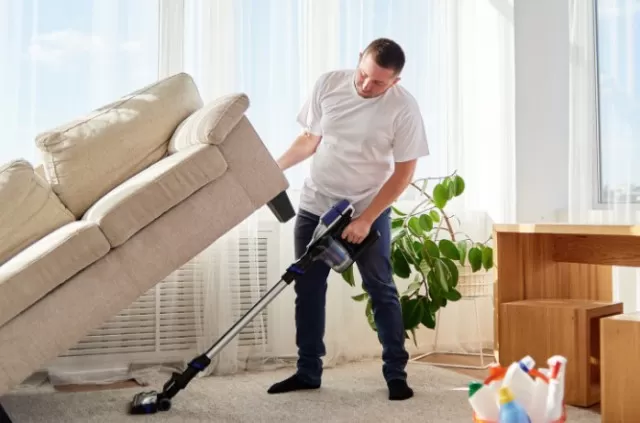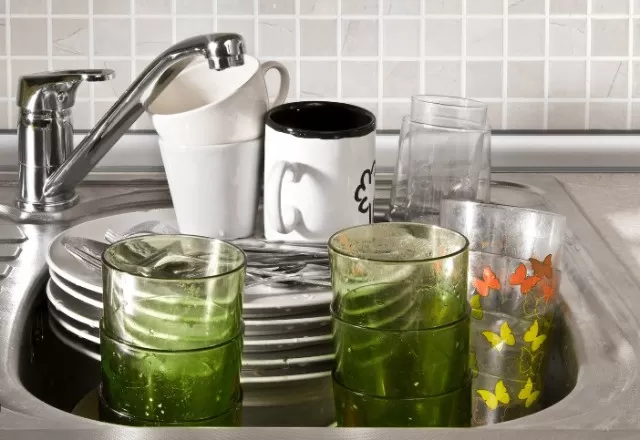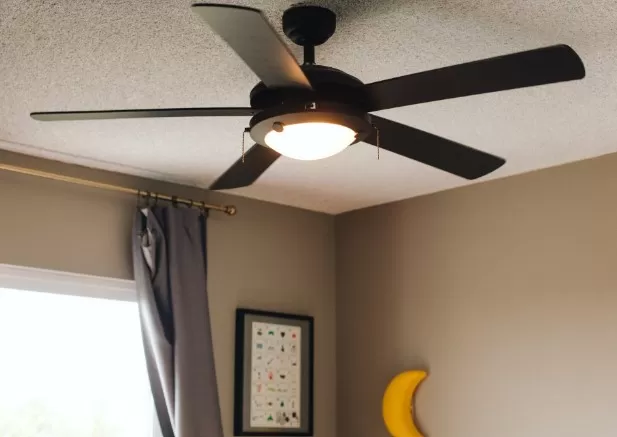Avoid These 8 Over-Cleaning Mistakes at Home. Are you cleaning your house every day? You may be over-cleaning your home, which can actually be harmful to certain items or spaces that don’t require that much attention.
You can put a stop to over-cleaning and give yourself the gift of time by slowing down your housework schedule. Here are 12 things in your home that you may be cleaning too much.
Tip: Over-cleaning can have negative impacts on your health. Allergy symptoms can be triggered during or immediately after dusting or vacuuming as you stir up and potentially inhale airborne particles. It takes at least two hours for the dust to settle after cleaning
Clothes

If you find yourself spending a lot of your leisure time in the laundry room, it’s possible that you’re washing your clothes too frequently.
Most garments can be worn multiple times before needing to be washed, with the exception of items such as underwear, socks, workout clothes, and anything else worn close to the body that should be washed after every use.
It’s important to take the time to hang up your clothes after wearing them, so they don’t end up in a crumpled pile on the floor or a chair, which will inevitably lead to more dirty laundry.
By doing so, you’ll have more free time and save money on electricity, water, and laundry products.

But what happens when you over-wash your clothes? Washing certain items too frequently can actually cause the fabric to wear out faster and lose its elasticity.
Furthermore, overusing laundry detergent can also lead to issues with both your clothing and washing machine. Modern HE (high-efficiency) washing machines use less water and cannot handle excessive suds.
If there are still suds left in your clothing after washing, they can attract more dirt and odors.
Dirty Dishes

You can save water and time while achieving cleaner dishes by skipping the step of rinsing dirty dishes before placing them in the dishwasher.
Dishwasher detergent in the form of powders, liquids, and tablets contain enzymes and other ingredients that are designed to attach themselves to food particles, dissolve the debris, and allow the water spray to flush it away.
When you rinse dirty dishes before placing them in the dishwasher, the detergent is wasted as it cannot adhere to anything.
However, it is still important to scrape off large amounts of food debris before loading dishes into the dishwasher.
In summary, by skipping the rinsing step, you can save water and time while allowing the dishwasher detergent to do its job and clean your dishes effectively.
Just be sure to scrape off any large food particles before loading your dishes into the dishwasher.
Maximizing the Benefits of Ceiling Fans and Lighting Fixtures

While a clean and polished light fixture is visually appealing and provides better illumination, dusting every light fixture in your home on a daily basis is unnecessary.
Household dust is composed of various unappealing elements, including mold, fungus, chemicals, and insect remains, among others. 4 However, in most cases, there is not enough accumulation of dust in a single day to cause any significant harm.
Ceiling-mounted lighting fixtures and ceiling fans only need to be dusted once a month.
However, if dust triggers asthma or allergy symptoms for you or anyone in your household, it is advisable to dust once a week. It is best to clean overhead fixtures first, so that any dust that is missed falls onto the floor, which can then be vacuumed away.
Tips for Maintaining and Storing Winter Outerwear
To save money on dry cleaning bills, it’s recommended that winter coats and accessories be sent to the cleaners or washed less frequently.
Most coats and outerwear only need to be cleaned once or twice a season.
When dealing with stains on coats and outerwear, it’s important to spot clean them as soon as possible.
After each use, hang the coat properly and use a good clothes brush to remove any accumulated dust or lint. Additionally, many types of winter coats, even those trimmed with faux fur, can be washed at home.
Care and Maintenance Tips for Bedspreads, Quilts, and Comforters
Cleaning bedspreads, quilts, and comforters can be a challenging task due to their size and weight.
However, unless you frequently eat on your bed or have multiple pets that frequently lounge there, there is no need to wash them on a weekly basis. Instead, clean them at the end of each season.
Before washing, make sure to check the fabric care tag since most bedding can be washed.
If you do not have a large, front-loading washer, consider taking the larger items to a laundromat. For just a few dollars, you can have clean linens in less than an hour.
For those who share their bed with pets, it’s best to cover heavy bedding with a sheet that can be easily washed.
In case of spills or pet accidents, spot clean the affected areas immediately.
Caring for Your Curtains and Drapes: Tips for Cleaning and Maintenance
When it comes to curtains and drapes in living areas and bedrooms, frequent cleaning is not necessary since most of the dust is removed by gravity.
However, a thorough cleaning through washing or dry cleaning once a year is recommended to remove dust that may have accumulated in the crevices and wrinkles of the fabric. For those concerned about dust, taking the drapes down and placing them in the dryer on the air-only cycle can remove dust and even reduce wrinkles. It’s important to avoid using heat as it can cause certain fabrics or linings to shrink.
In contrast, curtains in kitchens and bathrooms should be washed more often (ideally on a seasonal basis) since they tend to catch grease particles and aerosol over-sprays.
Keeping Your Carpets and Upholstered Furniture Clean and Fresh
Using an excessive amount of shampoo or cleaner and over-wetting carpets and upholstered furniture can lead to significant damage.
Excess shampoo can attract soil, while over-wetting can weaken the material and promote the growth of mold and mildew on the carpet’s backing, padding, and within the cushions of furniture.
Ideally, carpets and upholstered furniture should be professionally cleaned using steam and the appropriate cleaning products just once a year.
In addition, it’s important to vacuum carpets and upholstered furniture at least once a week to prevent dirt and dust from becoming embedded in the fibers.
Regular vacuuming helps to keep your carpets and upholstered furniture clean and fresh.
However, for a deep and thorough clean, it is best to leave it to the professionals who can effectively remove any embedded dirt, stains, and odors while ensuring that your carpets and upholstered furniture are not damaged in the process.
Practical Tips for Maintaining and Cleaning Furniture Slipcovers
Furniture slipcovers can provide a fresh new look and are generally easier to clean than upholstered furniture.
However, removing and replacing complex slipcovers can be impractical, and over-washing them can cause shrinkage or damage.
Unless there are accidental spills or pet hair on the slipcovers, it’s not necessary to wash them weekly.
Instead, simply spot clean any stains and give them a thorough cleaning at the end of each season to refresh their appearance.
By following these practical tips, you can maintain the appearance and durability of your furniture slipcovers without having to frequently wash or replace them.
*The information is for reference only.